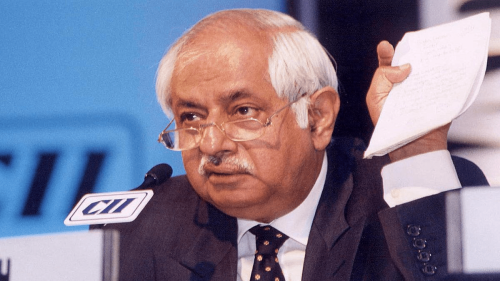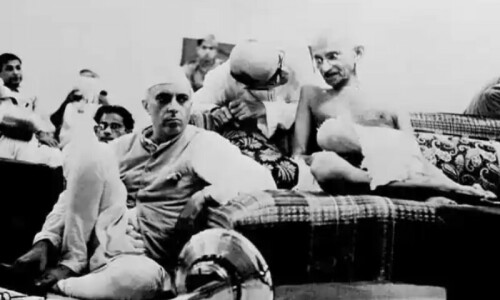A series of letters, which India’s current government has tried to keep classified, paint a weak picture of the Indian army’s position in its 1948 war with Pakistan, and that then-Indian prime minister Jawaharlal Nehru was urged to agree to a ceasefire by his most senior general.
According to a Guardian report, Mr Nehru was advised by Gen Sir Francis Robert Roy Bucher – who was the commander in chief of the Indian army – to compromise with Pakistan due to their military’s inability to withstand a long military operation.
The letters can have significant political consequences for India’s nationalist government – led by Prime Minister Modi – which had discredited Mr Nehru’s decision to compromise with Pakistan on the status of Kashmir as an ill-informed “blunder”, the Guardian said.
Indian-held Kashmir was illegally stripped of its special status in 2019, which gave the region constitutional autonomy. The Modi government justified its decision by suggesting that Mr Nehru had made a mistake.
Bucher papers reveal top general advised India’s first PM to pursue ceasefire with Pakistan in 1948
The correspondence from Gen Bucher shows that Mr Nehru’s decision was not a blunder, and that he was acting on his top commander’s advice that a political compromise was needed.
In his message to Mr Nehru, on November 28, 1948, Gen Bucher warned of fatigue among Indian troops in Kashmir, adding that an “overall military decision was no longer possible”.
Revealing Indian army’s weak positions on the battlefield, he wrote: “Army personnel evince two weaknesses, lack of training in the junior leaders, tiredness and ennui in the other ranks … In brief, the army needs respite for leave, training, and vitalising.”
There were also reports that Pakistan was planning to bomb Indian positions from the sky and was building roads to maintain and advance its positions.
Raising these concerns with Gen Bucher, Mr Nehru wrote “It is clear to me that we cannot rely on Pakistan remaining on the defensive.”
“In the event of Pakistan continuing their persistent shelling and offensive operation and our not being able to check this there, there is every likelihood of war taking place with Pakistan.”
In a later letter on Dec 28, Gen Bucher finally advised a ceasefire, saying “I am afraid we cannot take military action to stop every road-building operation by Pakistan. May I suggest a political approach to this problem.” The war ended with a ceasefire on Jan 1, 1949, and Mr Nehru provided special status to the state of Indian-held Jammu and Kashmir, giving the region autonomy.
Published in Dawn, March 10th, 2023































